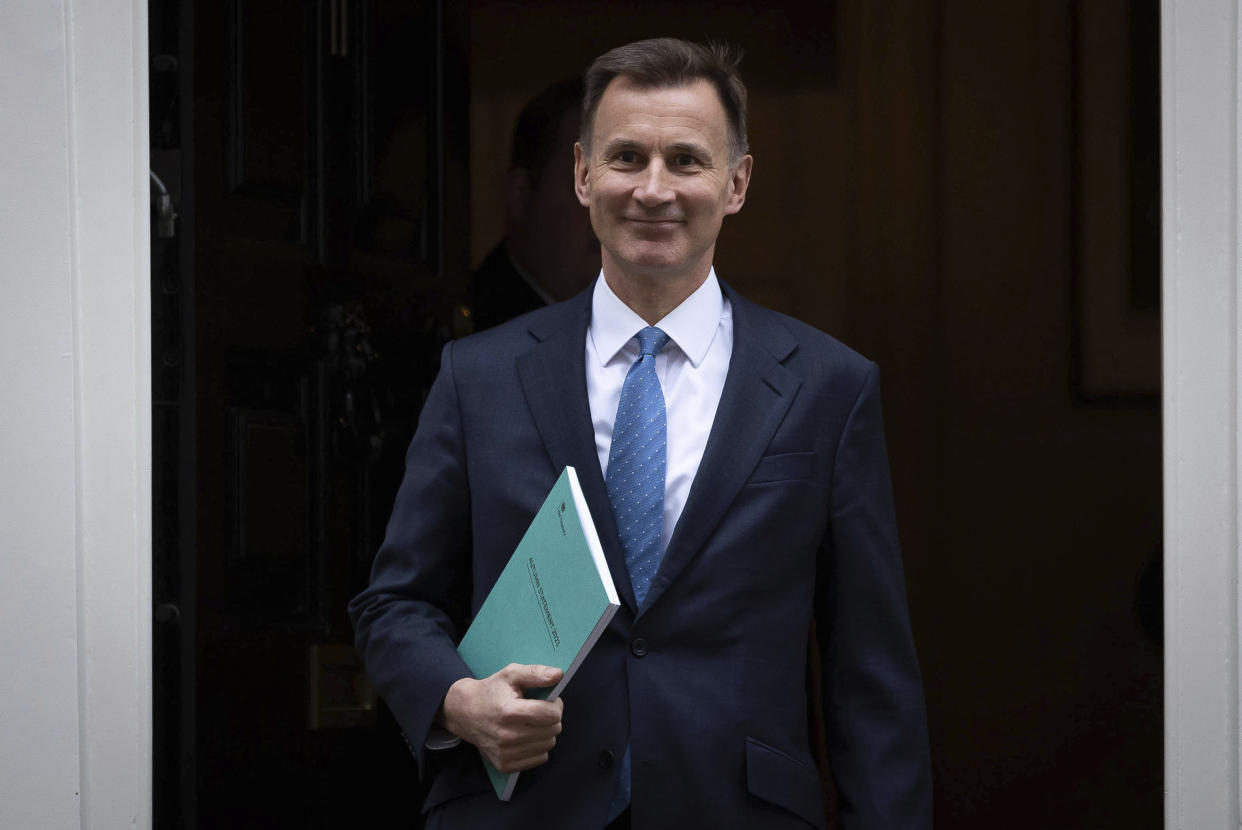FTSE and Europe rise after UK's autumn statement and ECB minutes

The FTSE 100 (^FTSE) and European stock markets were fairly muted on Thursday as traders digested Jeremy Hunt's 110 measures from the autumn statement on Wednesday, as well as news that energy bills in the UK are set to rise by 5%.
According to new analysis from the Resolution Foundation, the richest are set to gain the most from the chancellor's announcements in the Commons yesterday, with around 40% of the gains from the tax and benefit measures going to the richest fifth of the population.
The top 20% will gain £1,000 on average from Hunt’s changes, which is five times the £200 gained by the bottom fifth, the Foundation said.
London's benchmark index was trading 0.3% higher by the end the day, staging a small recovery after spending most of the time in the red. Meanwhile the CAC (^FCHI) gained 0.3% in Paris, and the Frankfurt DAX (^GDAXI) was 0.2% higher.
The Stoxx 600 (^STOXX) was 0.3% up, with gains in healthcare, basic materials and energy offset by losses in consumer non-cyclicals and tech shares. Stocks on Wall Street were closed for Thanksgiving.
Pierre Veyret, technical analyst at ActivTrades, said: "European benchmarks opened without clear direction on Thursday after mixed macro data failed to bolster market sentiment ahead of a long weekend in the US.”
“Lower transaction volumes and decreased market volatility traditionally occur during the long Thanksgiving weekend, when US investors stay away from their trading desks.”
Torsten Bell, chief executive of the Resolution Foundation, said: "Tax cutting rhetoric clashed with tax rising reality, and positive steps to encourage business investment combined with a growth sapping hit to public investment.
“Ultimately this reflects the pressures, not only of an upcoming election, but of governing a sicker, older, slower growing Britain, amidst an era of far higher interest rates.
“That might be difficult for policy makers, but it’s a disaster for households whose wages are stuck in a totally unprecedented 20 year stagnation. This parliament is set to achieve a truly grim new record: the first in which household incomes will be lower at its end than its beginning.”
Read more: Trending tickers: Arm | Jumia | Country Garden | Virgin Money
It came as the European Central Bank (ECB) has said that financial markets remain exposed to adverse macro-financial and geopolitical developments, potentially amplified by vulnerabilities in some non-bank financial institutions.
According to the November 2023 Financial Stability Review, the full impact of tighter financial conditions on the real economy is yet to be felt.
Elsewhere, energy bills in the UK are set to rise by 5% from January as Ofgem lifts its cap to an average of £1,928.
This means households will pay an extra £94 on average per year on their energy bills.
Ofgem said the rise was caused by rising wholesale gas prices, which had been affected by world events “including the conflict in the Middle East”.
The energy price cap sets a limit on the maximum amount suppliers can charge households in England, Wales and Scotland for each unit of gas and electricity.
Energy in Northern Ireland is regulated separately.
Watch: How does inflation affect interest rates?
Download the Yahoo Finance app, available for Apple and Android.


